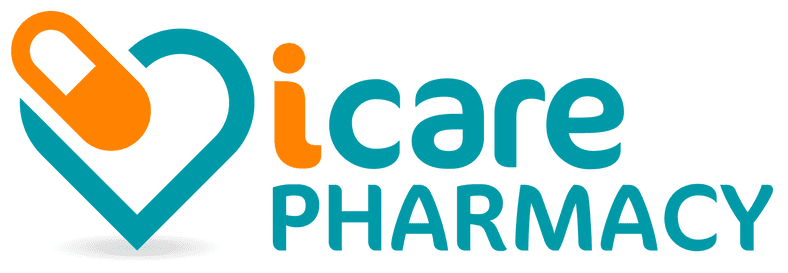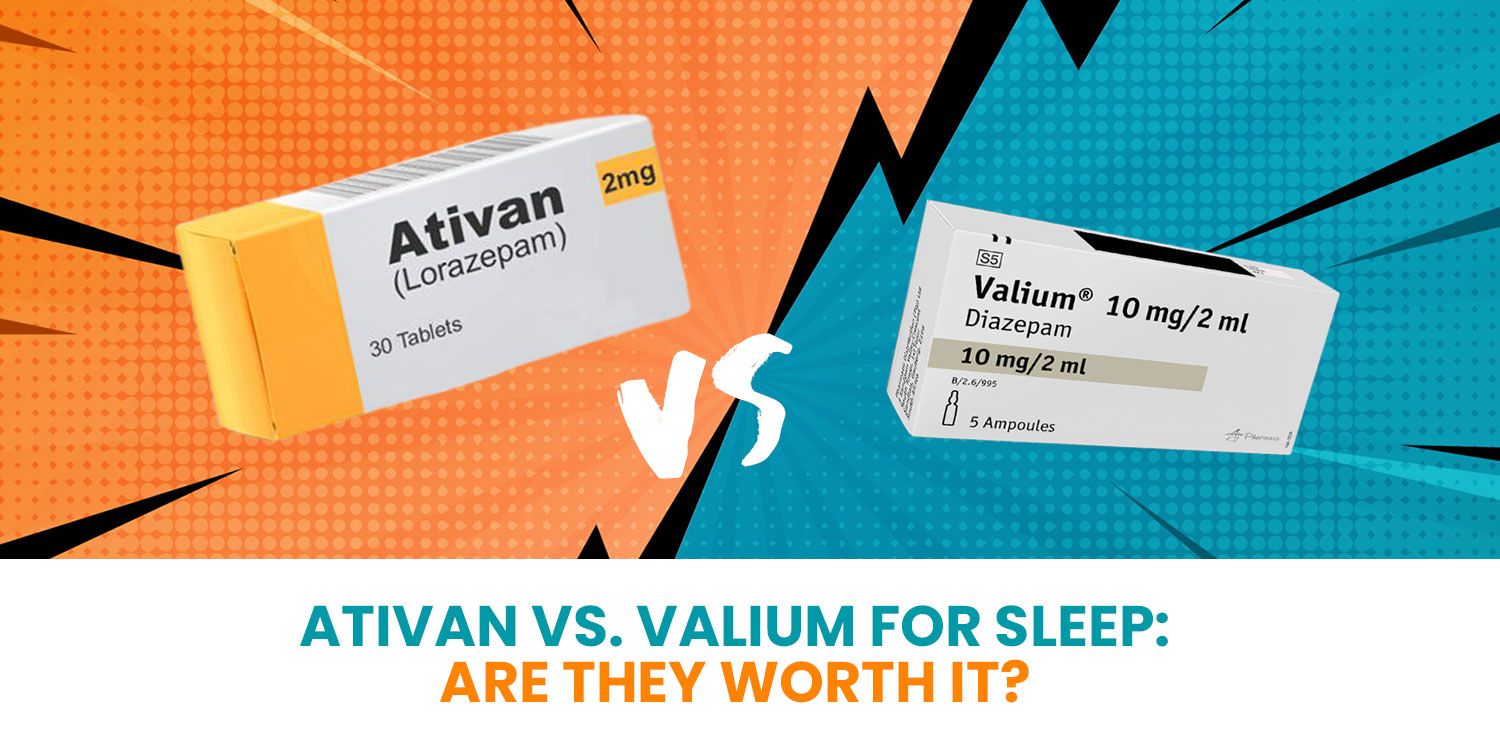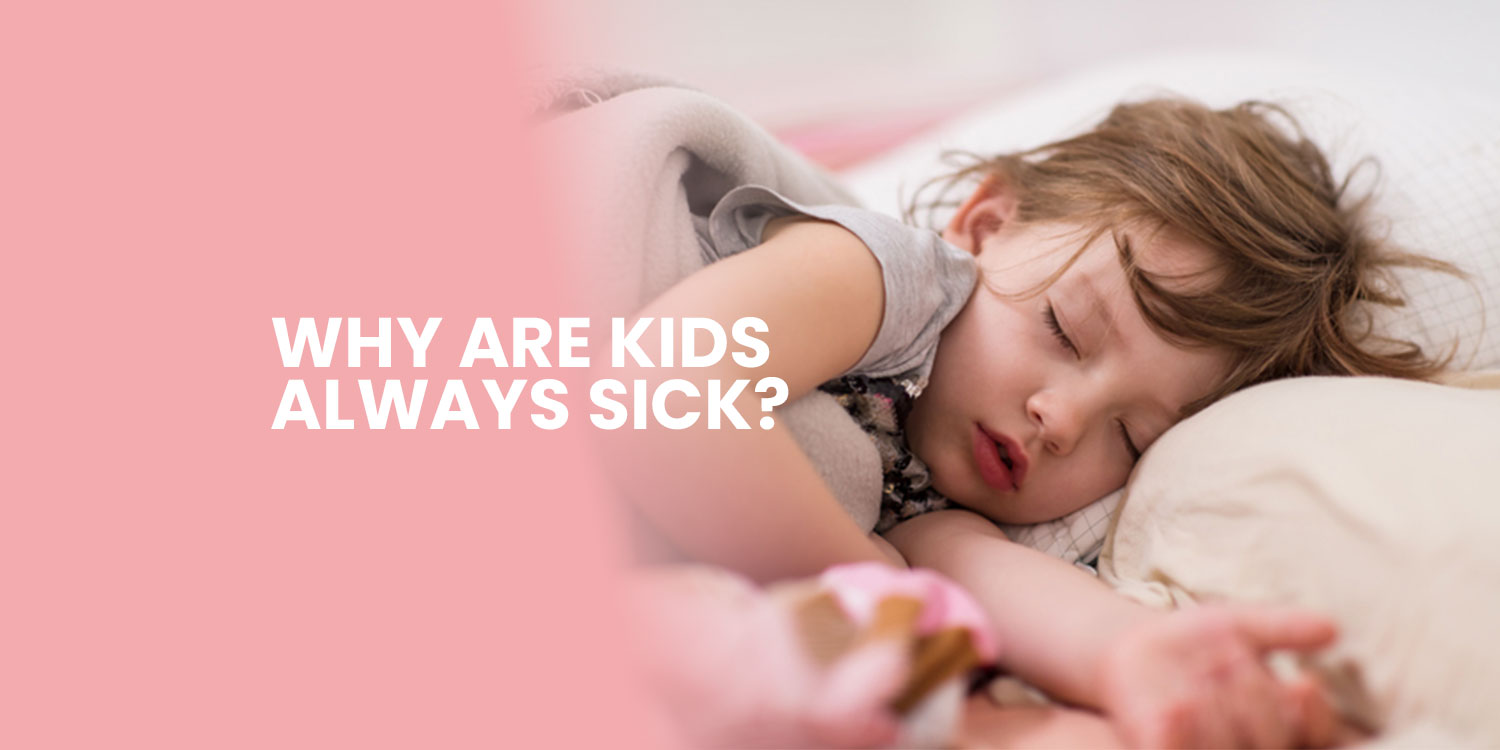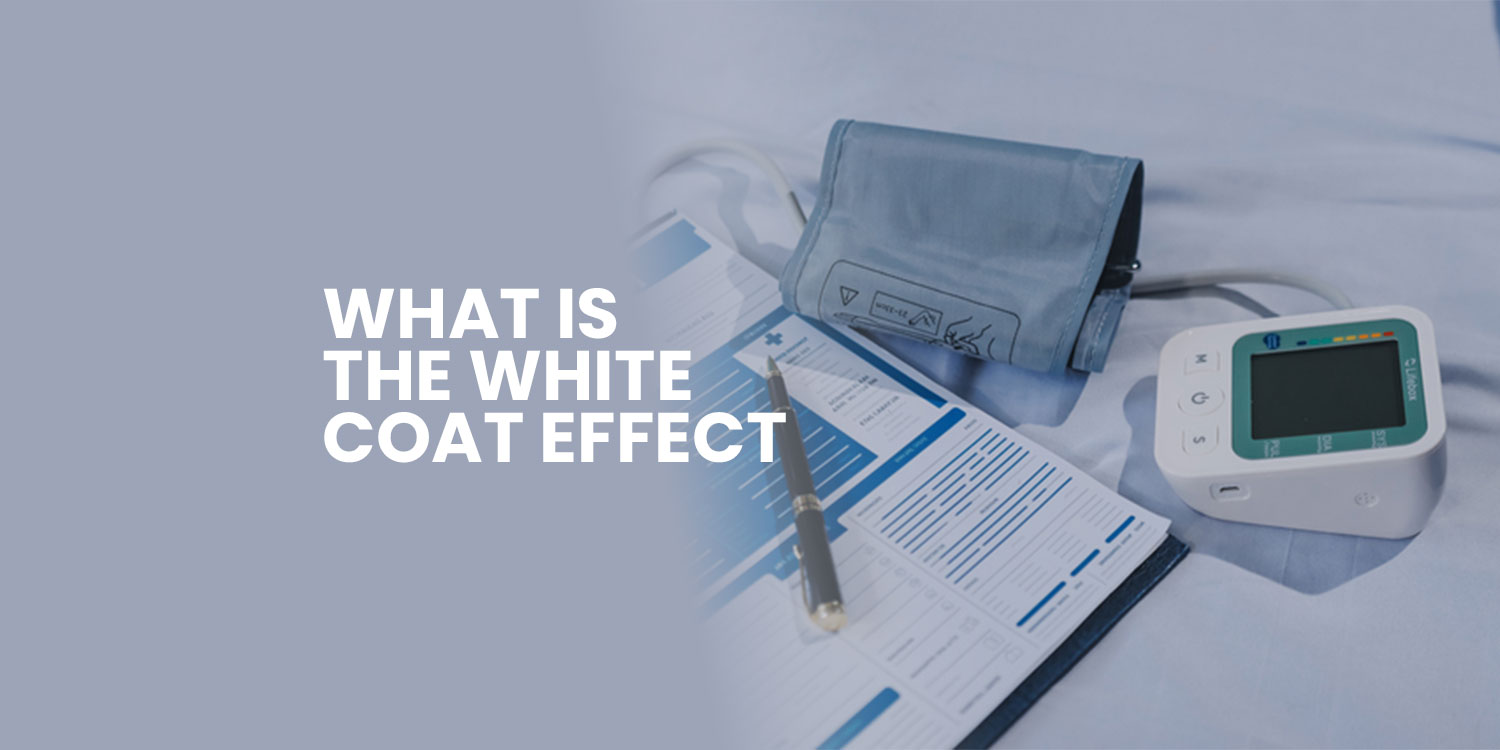Ativan vs. Valium for Sleep: Are They Worth It?
In my last video, I talked about antihistamines and sleep—specifically, how medications like Benadryl can make you drowsy but aren’t always the best long-term solution. Today, I want to discuss something stronger: Ativan (lorazepam) and Valium (diazepam). These medications are much more potent than over-the-counter sleep aids, but they come with some important drawbacks.
How Ativan and Valium Help With Sleep
Ativan and Valium belong to a class of drugs called benzodiazepines, which work by enhancing the effect of GABA (gamma-aminobutyric acid), a neurotransmitter that slows down brain activity. This calming effect makes them effective for falling asleep quickly, especially if you’re dealing with anxiety or acute stress (1).
Unlike antihistamines, which cause drowsiness as a side effect, benzodiazepines directly sedate the nervous system, resulting in a faster onset of sleep (2).
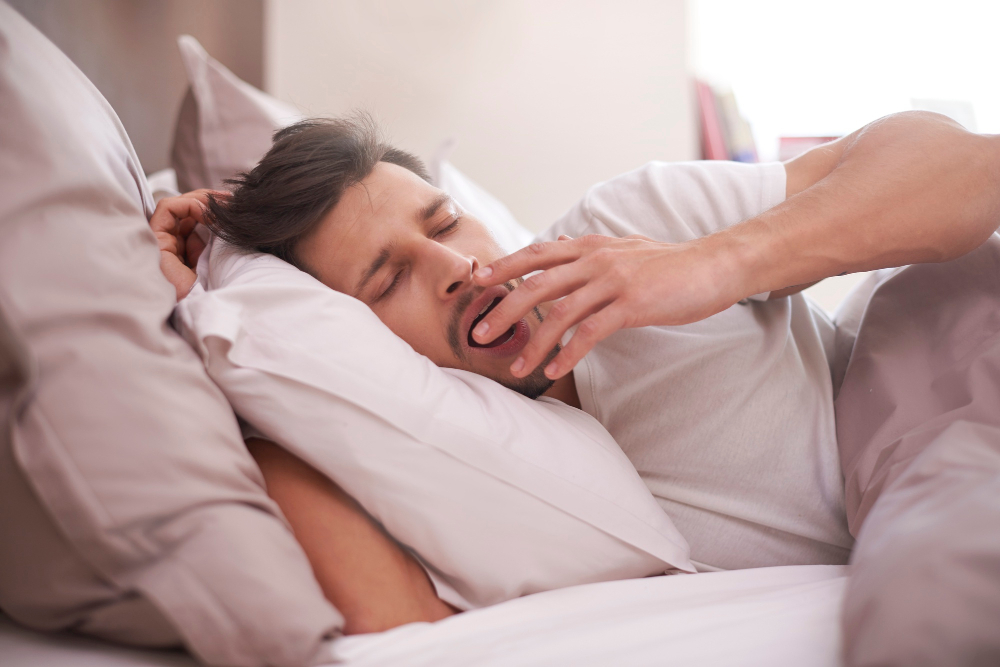
The Downside: Dependency and Tolerance
While these medications can be effective for short-term use, they are not ideal for long-term sleep issues. Here’s why:
- Risk of Dependence – Your body can develop a tolerance to Ativan or Valium, requiring higher doses over time to achieve the same sedative effect (3).
- Rebound Insomnia – Stopping benzodiazepines after regular use can lead to a return of insomnia—often worse than before (4).
Next-Day Drowsiness – These medications, especially Valium which has a longer half-life, can remain in your system and cause daytime grogginess (5).
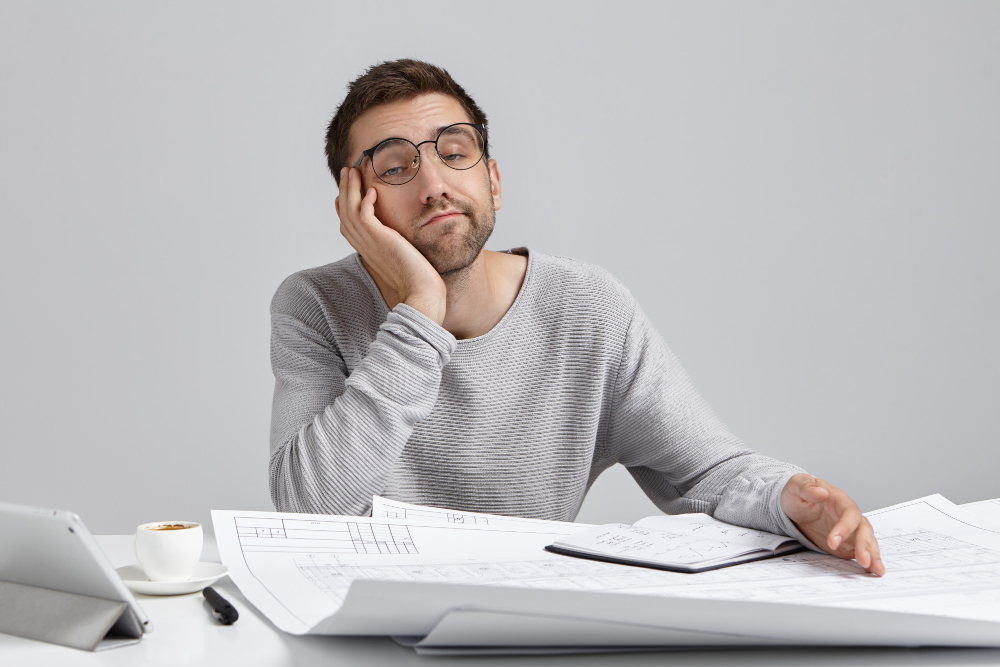
Should You Use Ativan or Valium for Sleep?
These medications can be useful in short-term situations—such as dealing with jet lag, temporary anxiety, or severe, short-term insomnia. However, they should not be your go-to solution for sleep due to their potential for dependence and lingering side effects.
If you’re dealing with chronic sleep issues, you may benefit more from:
- Cognitive Behavioral Therapy for Insomnia (CBT-I)
- Improved sleep hygiene
Non-addictive sleep aids, such as melatonin or certain antidepressants like trazodone (under medical guidance)
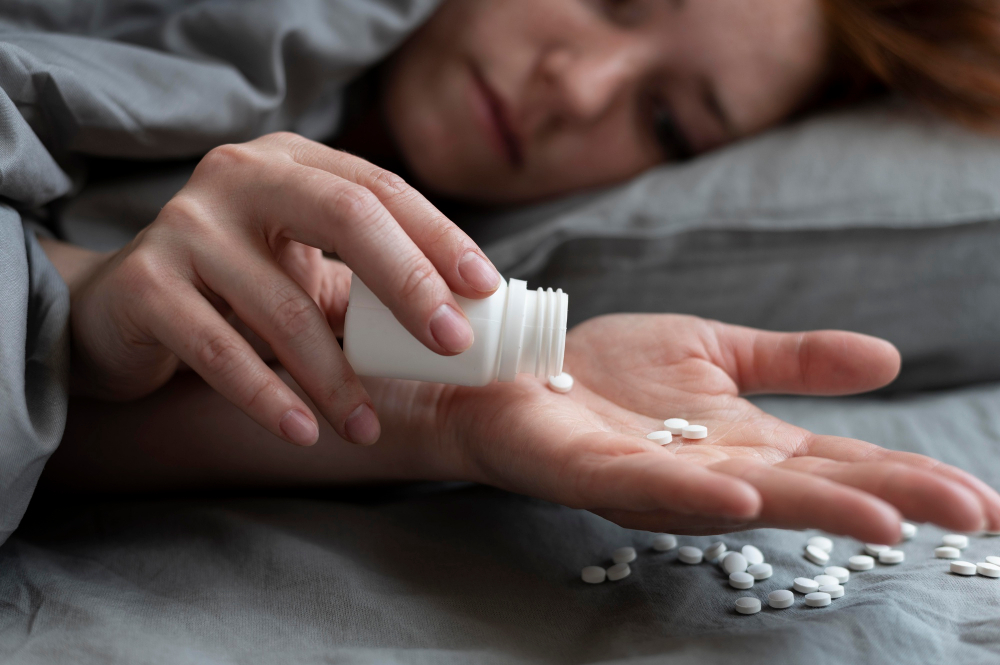
💡 Takeaway:
Ativan and Valium might help you fall asleep fast, but they come with significant risks. If you’re considering them for sleep, consult a healthcare provider for guidance on safer, more sustainable sleep solutions

References
- National Institute on Drug Abuse. Prescription CNS Depressants DrugFacts. https://nida.nih.gov
- Ashton, H. (2005). The diagnosis and management of benzodiazepine dependence. Current Opinion in Psychiatry, 18(3), 249–255.
- Lader, M. (2011). Benzodiazepines revisited—will we ever learn?. Addiction, 106(12), 2086–2109.
- Holbrook AM, Crowther R, Lotter A, Cheng C, King D. (2000). Meta-analysis of benzodiazepine use in the treatment of insomnia. CMAJ, 162(2), 225–233.
Vermeeren, A. (2004). Residual effects of hypnotics: epidemiology and clinical implications. CNS Drugs, 18(5), 297–328.
